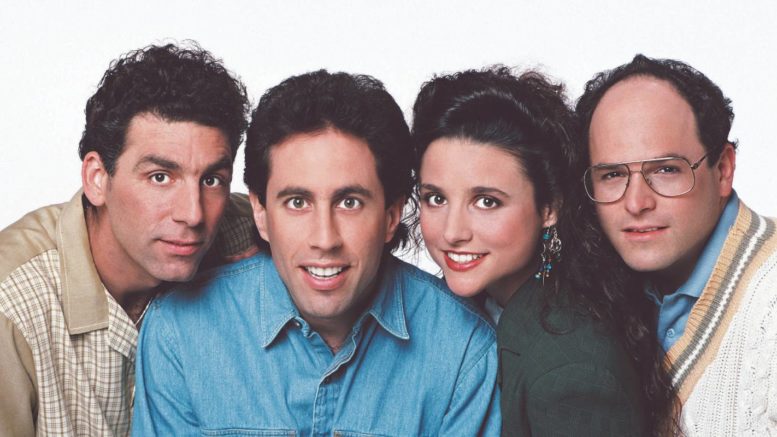OK, I couldn’t resist titling this article “the day the sitcom died.” I finally got around to watching the documentary, The Day The Music Died on Paramount Plus and it’s been taking up space in my head. Not for nothing, it’s a good documentary and I recommend it if you’re a fan of early post-Beatles rock and roll. But it’s not the subject of this article. So let’s get started.
The sitcom is dead. It wasn’t always
I think that we can all agree that in 2022 (almost 2023), the classic sitcom form is pretty much dead. I’m talking about the half-hour sitcom with very few sets, a mix of characters who act like a de facto family, and a cadence of jokes that comes from impossible situations. That sort of sitcom had a good run, but it’s practically impossible to find one now. CBS has a few but it seems very few people pay attention to them.
As a form, the sitcom had a very good run. It’s hard to say what the first true sitcom was, but its early beginnings come even before television. You can look back to Amos -n- Andy as an early example. (Please don’t, though, unless you are prepared for some very uncomfortable racial stereotypes.) It debuted in 1928. Some of the earliest successes on television were sitcoms. We all know of I Love Lucy and The Honeymooners but there were many other sitcoms in the 1950s that were almost as popular.
The sitcom continued to be a reliable form of TV entertainment throughout the 20th century. The premises were sometimes stupid (A man’s mother dies and reincarnated as a car) or heartwarming (two hippies have to contend with their son, a young conservative). No matter how you wanted to be entertained, though, there was a half-hour show waiting for you.
What happened?
Sometime in the early 21st century, though, the form began to fall on hard times. By 2004, NBC’s vaunted “Must See TV” lineup finally ran out of gas with the end of Friends. No other sitcom since reached quite the same heights. How I Met Your Mother and The Big Bang Theory did as well as they could but never quite achieved that massive ratings success.
By the fall of 2021, NBC announced they would have no comedies on its network slate. It was a long time coming. I personally date the death of the sitcom much earlier. I’d say for most of the ’10s the form was an ideological dead man walking. I’ve recently revisited some of the more successful comedies of the decade in my spare time. They’re mostly not worth remembering.
Something did happen. Two somethings, to be precise, and they are inextricably tied together. I’m talking about the rise of the DVR and the coming of premium TV on “basic cable.”
The DVR
Today it’s hard to remember a time when we couldn’t pause the programs we wanted to watch, or when we couldn’t watch them on our schedules. Yet, before the late ’00s, most people watched virtually everything live. This had a huge impact on the kind of entertainment we consumed. If you could only see it once, and if you couldn’t guarantee you’d be home to see it, it had to be simple and punchy. The one-two-laugh cadence of the sitcom worked very well with live TV. If you’ve ever tried to binge a sitcom, though, you know that it gets very repetitive, and you lose interest.
As people got DVRs, they became more able to enjoy really deep, complex programs. This led to the other big factor in the death of the sitcom.
Premium TV
Once people knew they could watch a show on their schedule, and even pause and rewind if there was something they wanted to see, TV was free to tell more complicated stories. Shows like Mad Men thrived because people could follow the long stories of these characters. Not only that, people really learned to enjoy the deep, complex content they got.
Let’s be honest, Mad Men makes a show like Three’s Company look pretty dumb in contrast. People wanted that extra challenge, and they didn’t want the same ten jokes over and over. Really that’s why the sitcom died.
Will the sitcom ever come back?
Although there are sitcoms out there today, they’re just not as impactful as they used to be. And I’m sure there will someday be a show that grabs the public’s imagination as much as I Love Lucy did. But it will be a rare event. Sitcoms are a part of our shared past, and not likely to be a big part of our shared future.
Besides, with 60 years of great sitcoms out there to watch, why do there need to be more. A lot of great stuff is available on satellite and on channels you can get with an antenna. You can visit these classic sitcoms the way they were meant to be watched… in real time with commercials.
This article is brought to you by Solid Signal. Shop at Solid Signal for satellite TV, over-the-air antennas, and all the accessories you need to live your best digital life. If you have questions, call us at 888-233-7563 or fill out the form below.

